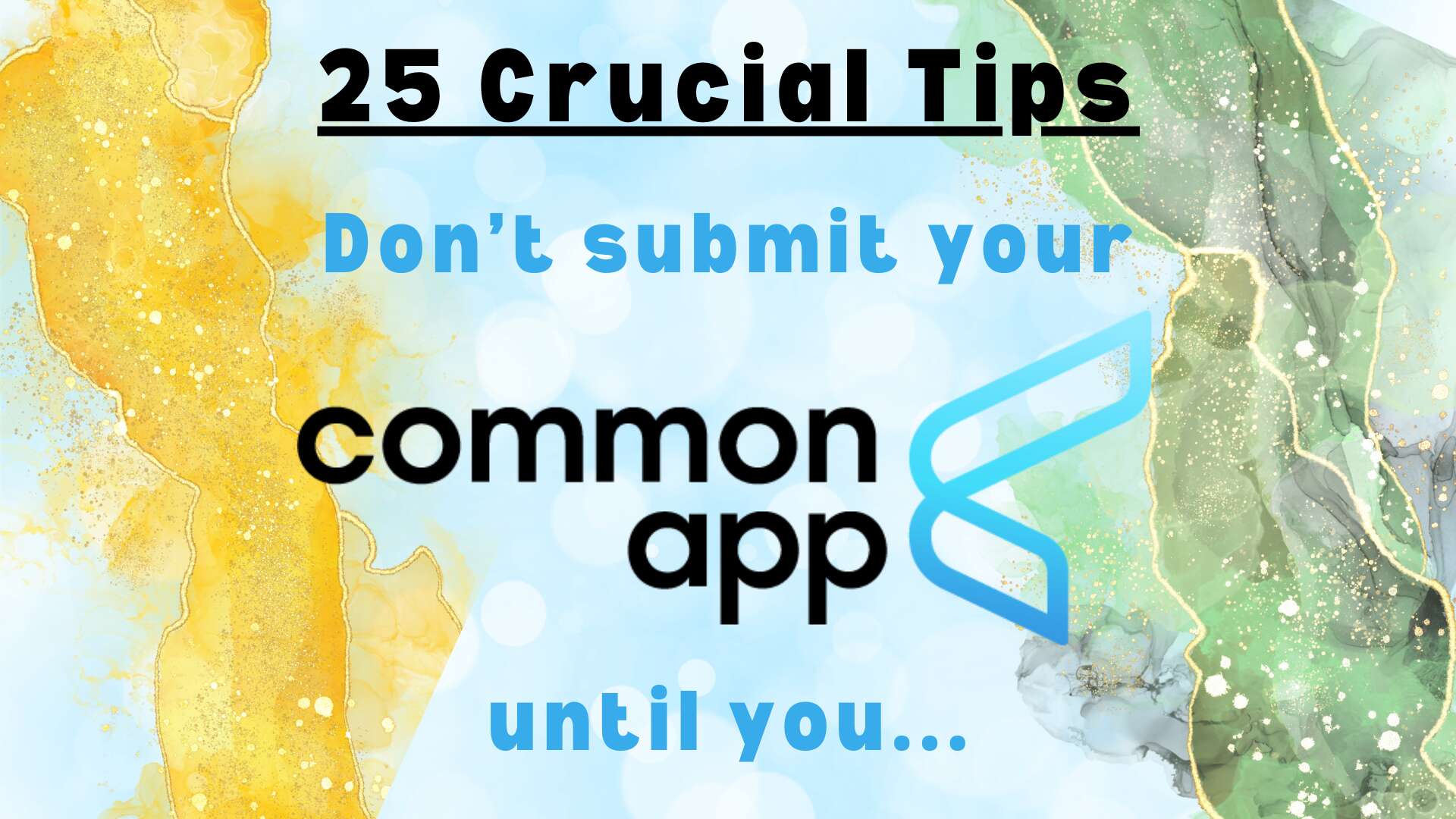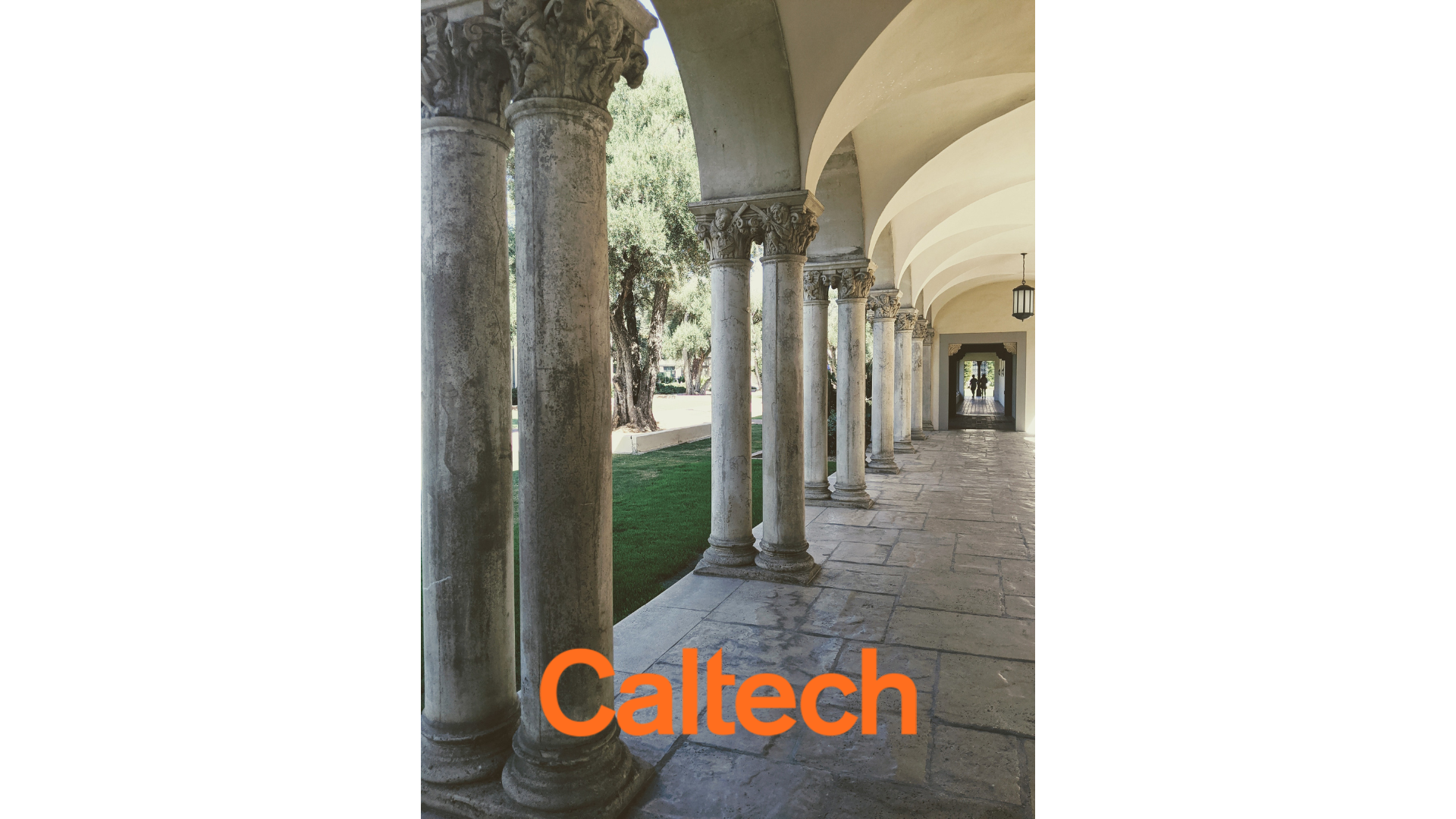 Many high school seniors race to submit their college applications in the days right before their deadlines. Sad to say, most high school seniors completing the Common App, even those submitting their apps by early deadlines, make a lot of mistakes that reduce their chances of admission.
Many high school seniors race to submit their college applications in the days right before their deadlines. Sad to say, most high school seniors completing the Common App, even those submitting their apps by early deadlines, make a lot of mistakes that reduce their chances of admission.
The most frequent – and unnecessary – mistakes that I see from students that you need to avoid making include:
1. Neglecting the Quality of the Essay: Students might rush their Common App essay, leading to generic responses or missed opportunities to showcase their unique voice and experiences.
2. Sharing Incomplete or Inaccurate Information: Errors in personal information, such as contact details, dates, or academic history, can create confusion or lead to the disqualification of your application from admissions consideration at highly selective colleges.
3. Overlooking Specificity/Fit in Supplemental Essays: Failing to pay attention to specific prompts for individual colleges or submitting poorly recycled essays from other supplements can hurt students’ chances.
4. Ignoring Word Limits: Many students exceed word limits on essays and don’t even notice that all of their essay didn’t pate into the app! Or students fail to fully utilize the space available, missing the chance to elaborate on key points. As I’ve written before, on your Common App essay, size does matter!
5. Making Formatting Mistakes: Submitting essays or materials with inconsistent formatting, such inconsistent indentations (just use block paragraphs) or extra spacing issues, can be distracting and appear unprofessional.
6. Neglecting Extracurricular Activities: Underrepresenting or failing to explain the significance of extracurricular activities can diminish an applicant’s profile and not submitting a full extracurricular résumé when and where possible.
7. Having a Lack of Specificity/Humanity Overall: Writing vague responses about interests, experiences, or goals can make an application less compelling. Colleges want to see specific examples and insights. SHOW as much if not more than you TELL – not just on the essays, but also on the Activities page and other parts of the app where you squeeze in details about your accomplishments. The more generic an application becomes the more I find it will rely on overused phrases or topics that can make the whole thing feel unoriginal and cliché. I’ll throw into this category relying on artificial intelligence (AI) to write your essays for you! Admissions offices are increasingly willing and able to use AI detectors when assessing essays.
8. Missing Deadlines: Some students mismanage time and miss critical deadlines for submissions, recommendations, or tests.
9. Failing to Edit and Proofread: Simple typos, grammatical errors, or awkward phrasing can detract from the overall impression of the application.
10. Disregarding Instructions/Prompts: Ignoring specific requirements or guidelines outlined by the college can lead to incomplete applications. For example, an increasing number of colleges require additional materials beyond the common portion of the Common App (such as a completed Courses & Grades section on the Common App or the SRAR post-submission of the Common App).
11. Forgetting to Confirm Recommendations: Students sometimes forget to ensure that recommenders submit their letters on time or don’t follow up with them.
Yet, as bad as all these faux pas are, these ugly eleven mistakes are really just hit-and-run summaries and the tip of the iceberg. In the below videos, I share valuable information that builds upon the eleven no-no’s mentioned above. This is information that you must know and think about carefully before you submit the Common App to one or more colleges on your list so you can give yourself the very best chances of admission.
And remember, when you’ve finished your Common App and you want to know if it’s as strong as possible and whether or not, in its current condition, your chances of admission are impressive, inconclusive, or inadequate, you consider getting My Pre-Read.
Good luck!
12. Biggest Common App Mistake Even Smart Students Make
13. Beware of Ghost Essays on the Common App
14. Mind the Gaps in Your Common App Essay
15. Accentuate Your Honors on the Common App Education Page
16. How to Hide and Reveal Your Scores on the Common App
17. Why Sample “Successful” Common App Essays Actually Suck
18. Best & Worst Common App Essay Prompts
19. Most and Least Popular Common App Essay Prompts
20. Should I respond to the “Community disruptions such as COVID-19” prompt?
21. What GPA Should I Report on the Common App?
22. What Your Essay Is So Bad
23. Why Your Essay Is Awful
24. Secret to a Successful First Draft Essay
25. How to Conclude a “Why” This College Essay
 What does a decade’s worth of increasingly identity-based admissions look like at University of Wisconsin-Madison? You’re about to find out. But formal Affirmative Action, which was outlawed by The Supreme Court of the United States last year, is just part of the story.
What does a decade’s worth of increasingly identity-based admissions look like at University of Wisconsin-Madison? You’re about to find out. But formal Affirmative Action, which was outlawed by The Supreme Court of the United States last year, is just part of the story. It’s October, so it means that many high school seniors are spending a lot of time completing their college applications before all-important early deadlines. While this can be stressful enough when one is applying to only colleges on the Common App, it can become downright painful when having to complete extra requirements beyond the standard Common App that certain colleges and universities are now expecting of college applicants. In particular, completing the SRAR (Self-Reported Academic Record), SSAR (Self-Reported Student Academic Record), or the Courses & Grades section of the Common App can be a source of major annoyance for high school seniors applying to college for several reasons.
It’s October, so it means that many high school seniors are spending a lot of time completing their college applications before all-important early deadlines. While this can be stressful enough when one is applying to only colleges on the Common App, it can become downright painful when having to complete extra requirements beyond the standard Common App that certain colleges and universities are now expecting of college applicants. In particular, completing the SRAR (Self-Reported Academic Record), SSAR (Self-Reported Student Academic Record), or the Courses & Grades section of the Common App can be a source of major annoyance for high school seniors applying to college for several reasons. Earlier this month, Tufts University welcomed its Class of 2028 to campus, but even as the university’s newest students settle into life on the Hill, Tufts’ admissions team is turning its attention to recruiting future Jumbos to join the Tufts Class of 2029 through the university’s signature virtual open house,
Earlier this month, Tufts University welcomed its Class of 2028 to campus, but even as the university’s newest students settle into life on the Hill, Tufts’ admissions team is turning its attention to recruiting future Jumbos to join the Tufts Class of 2029 through the university’s signature virtual open house,  The UCAS Personal Statement is being put out to pasture by the powers that be in UK higher education – and for better or worse (depending on one’s perspective) this is going to be a long goodbye: the replacement for the UCAS Personal Statement isn’t slated to debut until Fall 2025 (for those applying for 2026 admission).
The UCAS Personal Statement is being put out to pasture by the powers that be in UK higher education – and for better or worse (depending on one’s perspective) this is going to be a long goodbye: the replacement for the UCAS Personal Statement isn’t slated to debut until Fall 2025 (for those applying for 2026 admission). The ACT is changing in two majors ways starting in 2025.
The ACT is changing in two majors ways starting in 2025. Duke University has released its
Duke University has released its  Caltech, hot on the heels of announcing that
Caltech, hot on the heels of announcing that  University of Chicago has revealed its 2024-2025 admissions cycle supplemental essay prompts, and they’re as distinctive as ever before.
University of Chicago has revealed its 2024-2025 admissions cycle supplemental essay prompts, and they’re as distinctive as ever before. Cornell University in Ithaca, New York has introduced a new essay prompt that all first-year applicants must respond to in order to be considered for Cornell’s undergraduate Class of 2029.
Cornell University in Ithaca, New York has introduced a new essay prompt that all first-year applicants must respond to in order to be considered for Cornell’s undergraduate Class of 2029.